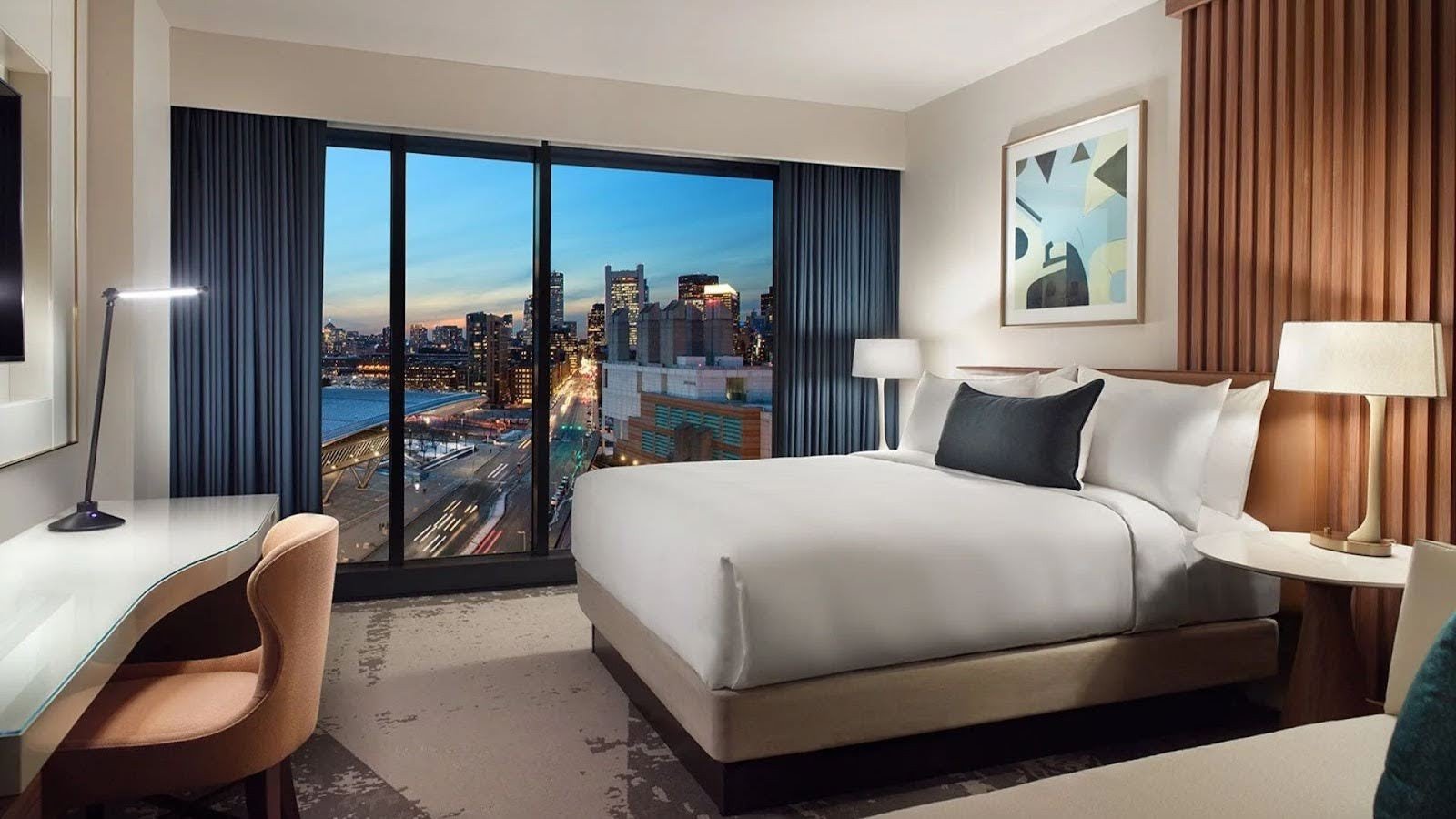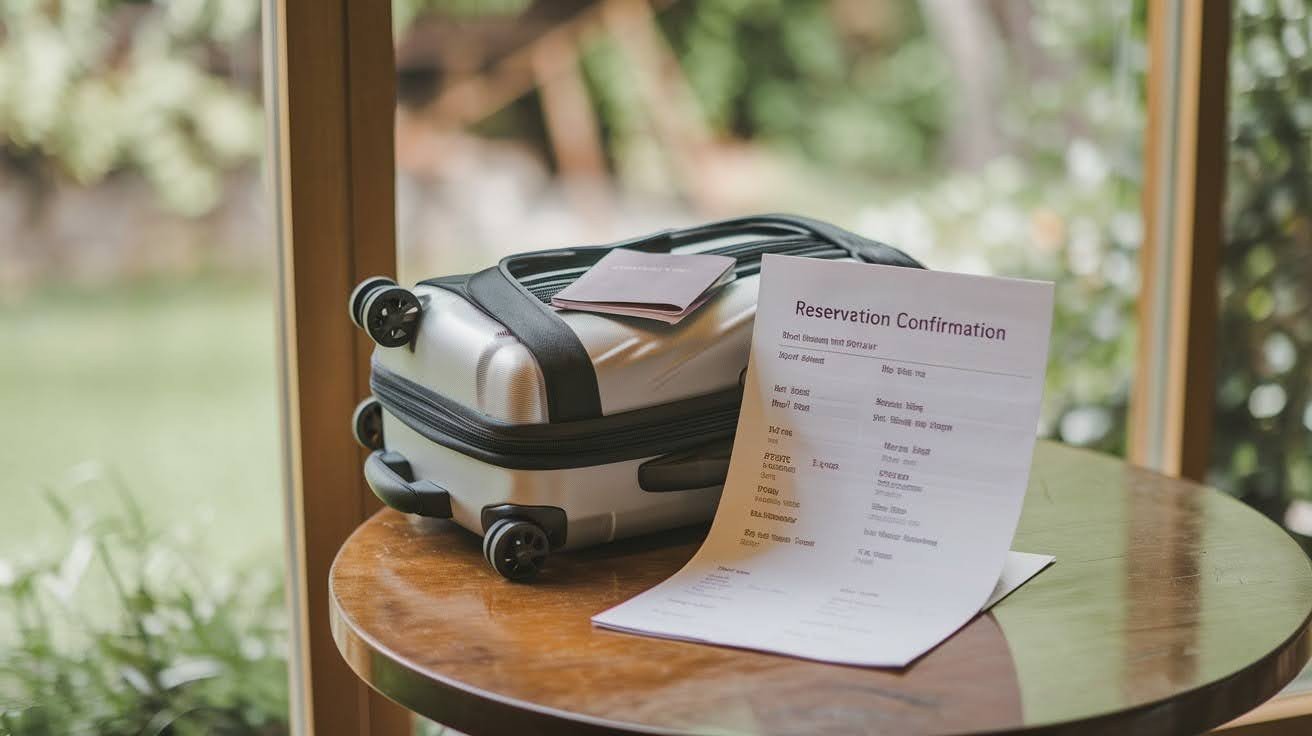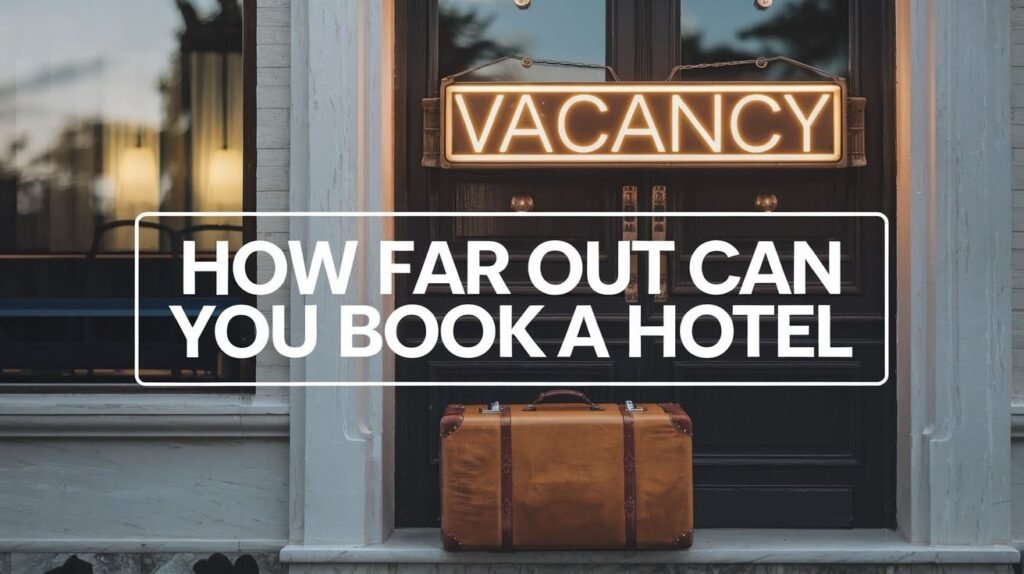After years of travel writing and managing over 200 hotel bookings for my family and clients, I learned this lesson the hard way.
Last summer in Yellowstone, I waited too long and paid $400 per night for what should have cost $150. That expensive mistake led me to research booking windows for every major hotel chain.
Most hotels open reservations 100 days to 2 years ahead, but timing depends on the brand. I’ve tested these systems myself, booking everything from fancy resorts to budget motels.
You’ll learn the exact booking windows for 10 major hotel chains, when to book a hotel for maximum savings, and which situations need quick action. This data comes from direct testing with hotel reservation systems and talks with industry contacts.
How Far in Advance Can You Book a Hotel?

When you try to book a hotel changes a lot by brand. I’ve called and tested major hotel chains myself, and they typically open their booking windows anywhere from 100 days to 730 days ahead.
Marriott lets you book a hotel 354-355 days early. That’s nearly a full year to plan your stay and get your preferred room type.
Hilton offers a 365-day booking window. That gives you exactly one year to make reservations. Some individual Hilton properties might have slightly different rules.
Hyatt gives one of the longest windows at 394-395 days. During my testing, this extra month made a big difference for popular places during the busy season.
Radisson stands out with booking windows up to 2 years ahead. Airbnb hosts set their own rules, with some taking bookings up to 3 years early.
Why Book Your Hotel in Advance?

Booking early gives you several clear benefits that can make or break your trip. I’ve seen this play out hundreds of times with my clients.
- Your chances of getting rooms with points or rewards improve a lot with planning
- You get certainty in high-demand places or during busy travel seasons
- Most major chains offer flexible cancellation policies, so you can change plans if needed
- Early booking protects you from price jumps and sold-out situations
The risk of waiting can be expensive. My friend Sarah learned this lesson when she delayed booking for her daughter’s college graduation. From my experience tracking hotel prices, the nearby hotels doubled their rates, and she ended up staying 45 minutes away from campus.
Best Times to Book Hotels Well in Advance
Some travel situations require you to book a hotel as early as possible to avoid disappointment or sky-high prices.
High-Demand Travel
Popular places during peak season fill up fast. Think Miami during Spring Break or Aspen during ski season. In my 15 years of travel planning, I’ve seen how fast rooms disappear when everyone wants to visit the same place at the same time.
Special events create instant demand spikes. I’ve tracked hotel rates that triple overnight when a major concert or sporting event gets announced. From experience, I tell all my clients to book a hotel right away when they know about these events.
Family or Group Travel
Multiple rooms become harder to find as your travel date gets closer. Hotels might have individual rooms available, but struggle to put groups who want to stay close together.
Last year, my cousin tried to book a hotel for a family reunion just two months out. Based on what I’ve seen in similar situations, the hotel could only offer rooms on different floors, which made coordinating family activities much harder.
Special or Limited Properties
Overwater bungalows, boutique hotels with few rooms, and convenient airport hotels book up months ahead. These properties have limited rooms, so waiting means missing out completely.
Airport hotels near major hubs often sell out during peak travel periods. In my own travel experience, I once had to book a hotel 30 minutes from the airport because I waited too long for an early morning flight.
When Last-Minute Hotel Booking Works?
Sometimes waiting to book a hotel can actually save you money. From tracking price patterns for years, I know hotels want to fill empty rooms, so they may offer discounts as your travel date gets closer.
Fancy hotels sometimes release availability close to check-in dates. Based on my industry contacts, these properties prefer to sell rooms at reduced rates rather than leave them empty, especially during slower periods.
The risks include limited room selection and potentially higher prices if demand stays strong. From my experience, last-minute booking works best when you have flexible travel dates and aren’t picky about specific features.
Hotel Chain Booking Windows at a Glance
Different hotel brands have different policies for how far ahead you can make reservations. I’ve personally tested each of these booking systems to verify these windows.
| Hotel Chain | How Far Out You Can Book | Notes |
| Marriott | 354-355 days | One year typical |
| Hilton | 365 days | May vary by hotel |
| Hyatt | 394-395 days | Over a year |
| IHG | 350 days | Standard |
| Radisson | 730 days | Longest window |
| Accor | ~404-405 days | Common in Europe |
| Best Western | ~349-350 days | Standard mid-range |
| Choice | 100 days (awards), 365 days (paid) | |
| Wyndham | 364-365 days | Global spread |
| Airbnb | Up to 3 years (varies) | Host discretion |
These booking windows give you a clear timeline for when you can get your preferred rooms. Remember that individual properties within each chain might have slightly different policies.
Conclusion
Through years of testing hotel booking systems and tracking price patterns, I’ve learned that timing truly makes the difference between smart savings and costly mistakes.
Most hotels open booking windows around 12 months ahead, but knowing the specific dates for each chain gives you a real advantage.
My recommendation: book a hotel right away for peak season destinations, major events, or when you need multiple rooms. For flexible trips, watch prices starting 90 days out. These strategies have saved my clients thousands over the past decade.
Remember, the best booking time balances your specific needs with market realities. Start with these proven timelines, then adjust based on your destination and travel dates for the best results.
Frequently Asked Questions
How far in advance should you book for the best price?
From analyzing hundreds of bookings, I’ve found that booking 2-3 months ahead offers the best balance of price and availability for most places. However, popular destinations during peak season need booking 6-12 months early to avoid price jumps.
Can booking too early ever cost more?
Sometimes yes. From my price tracking experience, hotels may start with higher rates and lower them closer to the travel date if demand doesn’t meet expectations. This happens more often with business hotels during typically busy weekdays.
Is it better to book with cash or points in advance?
Based on my client work, points bookings often have more limited availability, so book with points as early as possible if you want to use rewards. Cash bookings typically have more flexibility and can sometimes be cancelled without penalty.
Do hotels really get cheaper last-minute?
It depends on the place and season. From my research, business hotels in major cities often drop rates on weekends. Resort destinations rarely get cheaper last-minute during peak season.
Which hotels offer the longest booking window?
Radisson offers the longest standard booking window at up to 730 days (2 years). Some Airbnb hosts allow bookings up to 3 years ahead, but this varies by individual property.

